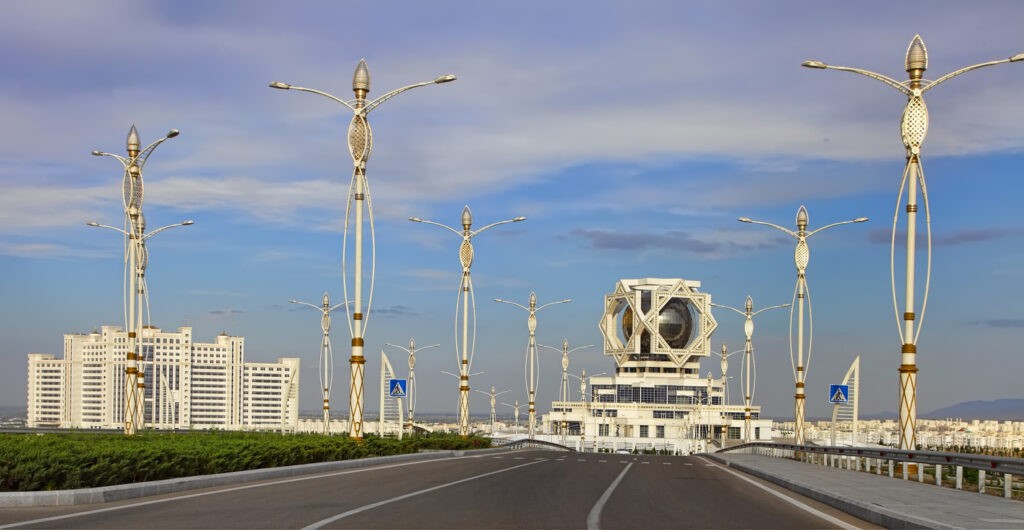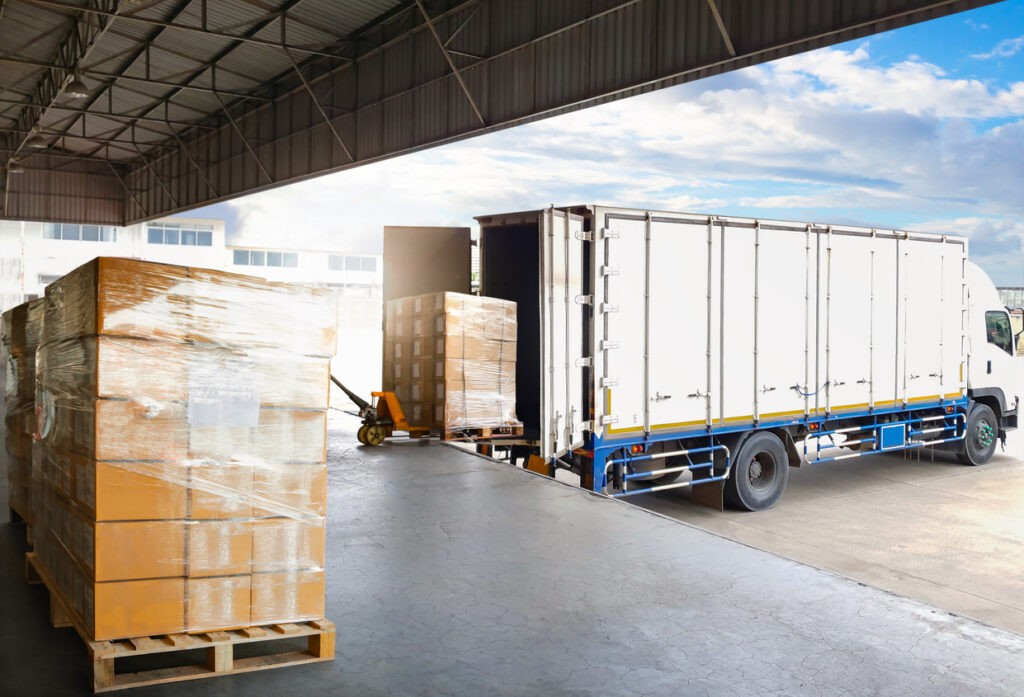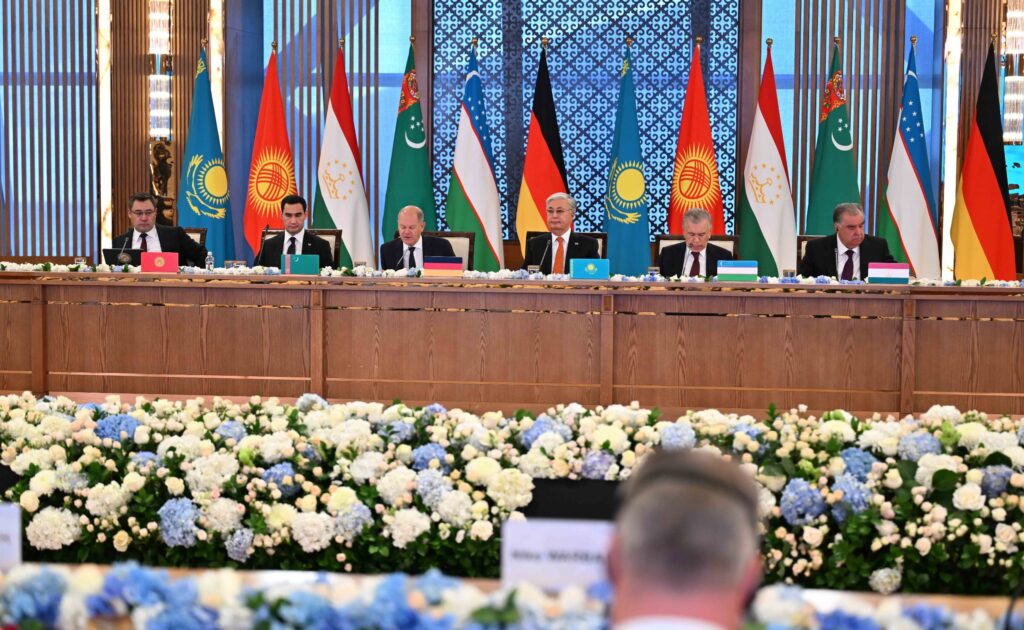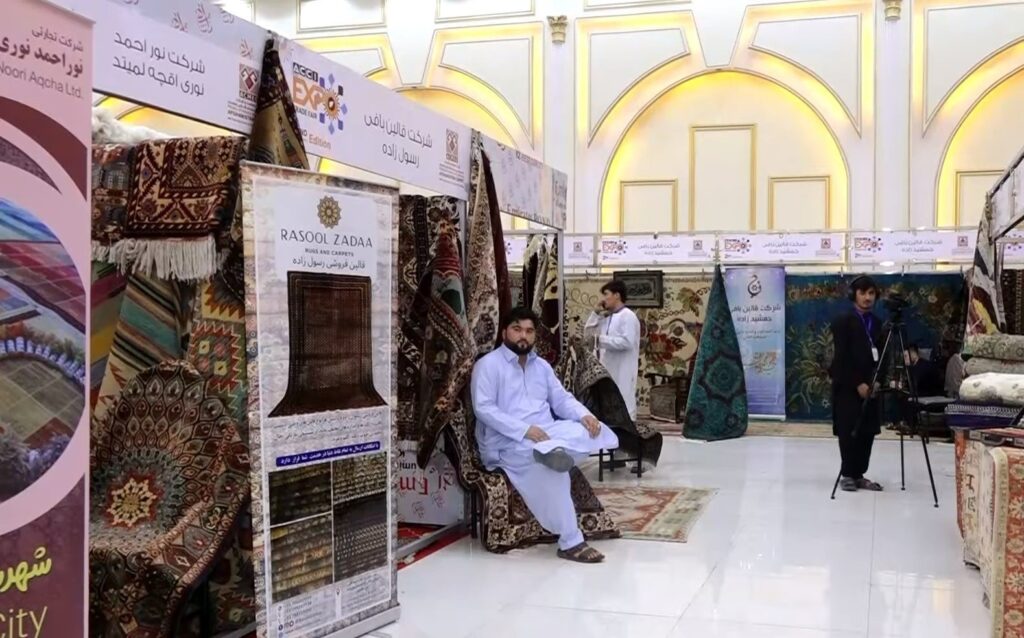BISHKEK (TCA) — The Publisher’s note: Throughout the 19th and 20th centuries, Central Asia was the scene of intense geopolitical struggle and the Great Game between the British and Russian Empires, and later between the Soviet Union and the West, over Afghanistan and neighboring territories. Into the 21st century, Central Asia has become the area of a renewed geopolitical interest, dubbed the New Great Game, largely based on the region’s hydrocarbon and mineral wealth. On top of that, the region now is perhaps the most important node in the implementation of China’s One Belt, One Road initiative through which Beijing aims to get direct access to Western markets. Every week thousands of news appears in the world’s printed and online media and many of them may escape the attention of busy readers. At The Times of Central Asia, we strongly believe that more information can better contribute to peaceful development and better knowledge of this unique region. So we are presenting this Weekly Digest which compiles what other media have reported on Central Asia over the past week.
KAZAKHSTAN
A Tough September for Kazakhstan’s Banks
Banks in Kazakhstan continue experiencing problems with liquidity and non-performing loans
Oct 15 — “In mid-September, KASE, Kazakhstan’s Stock Exchange, halted trades for shares of Astana Banki, a mid-sized lender. The following week, on September 18, the Central Bank stripped Astana Banki’s license. The decision echoed actions taken against Eximbankand Qazaq Banki, which had their licenses revoked at the end of August.” READ MORE: https://thediplomat.com/2018/10/a-tough-september-for-kazakhstans-banks/
Kazakhstan’s uranium giant to list in London
The Kazakh government has for years been talking about undertaking a broad privatization program aimed at reducing the state’s overwhelming involvement in the economy and encouraging local investors to buy into national companies
Oct 15 — “Kazakhstan’s wholly state-owned uranium mining giant is capitalizing on high prices for its wares by announcing plans to list on the London Stock Exchange. The Financial Times reported on October 15 that Kazatomprom will sell off a 25 percent stake through an instrument called depository receipts. Rather than selling stock to investors directly, Kazatomprom will rely on a depositary bank that will hold the asset while selling certificates.” READ MORE: https://eurasianet.org/kazakhstans-uranium-giant-to-list-in-london
Kazakhstan laborers head to South Korea for a better life
Despite the government’s reports on economic growth in Kazakhstan, many Kazakh citizens that failed to find good job opportunities at home have moved abroad to earn their living
Oct 17 — “Labor migration in Central Asia is most typically associated with the region’s economically weaker nations — Kyrgyzstan, Tajikistan and Uzbekistan. But as Kazakhstan has struggled in recent years amid a slump in global oil prices, its nationals too have looked overseas for employment prospects in low-skilled sectors. South Korea has been a particularly strong draw.” READ MORE: https://timesca.com/index.php/news/20381-kazakhstan-laborers-head-to-south-korea-for-a-better-life
Kazakhstan building the Great Financial Silk Road: hub by hub
Kazakhstan’s Astana International Financial Center (AIFC) has the potential to become an essential pillar on the new Silk Road and a financial bridge between China and Europe
Oct 19 — “During the Astana Financial Days event in July 2018, President Nursultan Nazarbayev of Kazakhstan announced and personally endorsed the opening of the Astana International Financial Center (AIFC). He envisions that the AIFC will provide financial services “not only for Kazakhstan, but also for the whole world.” If successful, the AIFC can contribute to diversifying the financial resources for Kazakhstan’s national and international projects.” READ MORE: https://timesca.com/index.php/news/26-opinion-head/20391-kazakhstan-building-the-great-financial-silk-road-hub-by-hub
KYRGYZSTAN
Energy challenges in Kyrgyzstan: debt repayment and management optimization
Kyrgyzstan has huge hydro power resources but lacks money to build new hydro power plants
Oct 14 — “The International Court of Justice (ICJ) in The Hague will consider Russia’s RusHydro Public JSC claim against Kyrgyzstan’s Government to return $37 million spent for the construction of the Upper Naryn hydropower plants cascade in the Central Asian country.” READ MORE: https://timesca.com/index.php/news/26-opinion-head/20368-energy-challenges-in-kyrgyzstan-debt-repayment-and-management-optimization
Kyrgyzstan: State textbooks embrace post-truth, post-grammar ethos
Kyrgyzstan’s degrading secondary-school system is now facing a new problem — this time with the provision of quality textbooks
Oct 16 — “Misspellings galore, out-of-date facts and stolen pictures. This and more awaits children in Kyrgyzstan receiving the latest batch of state school textbooks. The books, which are rented out to pupils by government schools, have been created for the 11-to-13 age range and were partly financed with aid provided by the World Bank.” READ MORE: https://eurasianet.org/kyrgyzstan-state-textbooks-embrace-post-truth-post-grammar-ethos
Billions stolen from state. Financial police tell about main corruption schemes
Corruption and the shadow economy are among the most serious problems facing the Kyrgyz economy
Oct 17 — “The Chief of Staff of the State Service for Combating Economic Crimes (SSCEC), Azamat Mambetov, in an interview with 24.kg news agency told which agencies had most of all corruption violations and why businessmen pay off debts to the state directly to the budget, and not through a special account.” READ MORE: https://24.kg/english/99055_Billions_stolen_from_state_Financial_police_tell_about_main_corruption_schemes/
Blackpool FC, a Kyrgyzstan money-laundering conviction and a non-takeover
In 2007, Latvian banker Valeri Belokon operated a bank in Kyrgyzstan, named Manas, and had a business partnership with Maxim Bakiyev, the son of the then President, Kurmanbek Bakiyev
Oct 18 — “When the Latvian bank mogul Valeri Belokon won his landmark high court case against the Blackpool owner, Owen Oyston, last November, it seemed finally to deliver the means of ending Oyston’s long, toxic tenure at Bloomfield Road. Yet nearly a year on Oyston remains in charge despite the ruling that he “illegitimately stripped” the club of £26.77m after its one jackpot season in the Premier League, and must pay that huge sum to Belokon, plus the Latvian’s original £4.5m investment and costs.” READ MORE: https://www.theguardian.com/football/2018/oct/18/blackpool-takeover-valeri-belokon-owen-oyston
TAJIKISTAN
Putting An End To 20 Years Of Death Along The Tajik-Uzbek Border
Under agreements reached during Uzbek President Mirziyoev’s visit to Tajikistan in March, the Tajik-Uzbek border area should be cleared of land mines by the end of 2019
Oct 13 — “There was more good news in Tajik-Uzbek relations on October 6, when the head of the Tajik president’s Center for Strategic Research, Hudoyberdy Holiqnazar, announced demining work had started along the border with Uzbekistan.” READ MORE: https://www.rferl.org/a/putting-an-end-to-20-years-of-death-along-the-tajik-uzbek-border/29541805.html
Submission on Tajikistan to the United Nations Committee on the Elimination of Discrimination against Women
Violence against women remains pervasive in Tajik society today, Human Rights Watch says
Oct 15 — “This submission summarizes Human Rights Watch’s concerns regarding the government of Tajikistan’s compliance with its obligations under the United Nations Convention on the Elimination of All Forms of Discrimination against Women.” READ MORE: https://www.hrw.org/news/2018/10/15/submission-tajikistan-united-nations-committee-elimination-discrimination-against
Tajikistan attracted $ 5 billion for five years in economy
China remains the main creditor and investor in the Tajik economy
Oct 17 — “Over $ 5 billion foreign investment has entered the Tajik economy over the past five years. As many as $ 2 billion came from foreign direct investment. Such statistics was given by President of Tajikistan Emomali Rahmon at the International Business Forum opened in Dushanbe.” READ MORE: https://www.azernews.az/region/139191.html
TURKMENISTAN
Turkmenistan: Back in the Gazprom groove?
In its ‘Akhal-Teke: A Turkmenistan Bulletin’, Eurasianet reviews the main news and events in the Central Asian country for the previous week
Oct 16 — “The head of Russian natural gas behemoth Gazprom traveled to Turkmenistan this week and indicated that Moscow would resume buying fuel from Ashgabat from next January. No details were provided about the volumes under discussion, but Gazprom chief executive Alexei Miller said he expected that “agreements [regarding such sales] will be achieved very soon.” READ MORE: https://eurasianet.org/turkmenistan-back-in-the-gazprom-groove
Due to a shortage of basic groceries residents from provinces flee Turkmenistan
As Turkmenistan is experiencing an economic crisis, some residents have departed for Russia, Turkey and even Cyprus
Oct 17 — “Correspondents of “Chronicles of Turkmenistan” report that due to growing problems with flour and bread supply, residents form the provinces are fleeing the country. An increasing number of abandoned privately-owned houses can be identified in Tazabazar etrap of Mary velayat, as well as in Bairamali, Ioleten, Turkmengal and Murgab etraps.” READ MORE: https://en.hronikatm.com/2018/10/due-to-a-shortage-of-basic-groceries-residents-from-provinces-flee-turkmenistan/
Iran-Turkmenistan Gas Dispute in Arbitration: Official
Since Turkmenistan stopped natural gas supplies to Iran, China is now the only buyer of Turkmen fuel
Oct 17 — “An Iranian deputy minister said the dispute between Iran and Turkmenistan over natural gas trade has gone to arbitration, noting that both sides have filed lawsuits against each other. In an interview with Tasnim, deputy oil minister and managing director of the National Iranian Gas Company (NIGC) Hamid Reza Araqi said Tehran and Ashgabat have brought lawsuits against each other, saying the international arbitration court is hearing the two cases.” READ MORE: https://www.tasnimnews.com/en/news/2018/10/17/1854963/iran-turkmenistan-gas-dispute-in-arbitration-official
UZBEKISTAN
On the reform path: Uzbekistan opens up after years of isolation
Uzbekistan was until recently one of the world’s most isolated countries, with institutionalised forced labour on its cotton fields, an appalling torture record, and restricted individual freedoms. But the country is opening up now
Oct 14 — “On September 25, friendly staff at Uzbekistan’s Supreme Court warmly greeted dozens of guests, among them journalists, foreign diplomats and members of the international community, allowing the visitors to take photographs of the building’s impressive interior. The atmosphere was festive and open, and yet surreal. Until recently, the Supreme Court of Uzbekistan was a heavily guarded place whose name invoked little more than fear.” READ MORE: https://www.aljazeera.com/indepth/features/reform-path-uzbekistan-opens-years-isolation-181014092246543.html
Uzbekistan and Russia: Chilly weather, warm relations
Tashkent is now changing its attitude to Russia, which was rather cold and distant under late President Islam Karimov. The question is how far Uzbekistan will go in its improving relationship with Moscow
Oct 18 — “The capital of Uzbekistan has gone Russian for the week – even the weather has turned cold and snowy. Tashkent is decked out in red-blue-and-white flags. Roads in the center are lined with billboards carrying the words: “Welcome Russian friends!” Even buses have been emblazoned with the flags of Russia and Uzbekistan – an unprecedented sight.” READ MORE: https://timesca.com/index.php/news/20386-uzbekistan-and-russia-chilly-weather-warm-relations
Russia and Uzbekistan launch work on nuclear power plant
Nuclear power will free up natural gas for more lucrative usage in Uzbekistan — such as chemicals production and export
Oct 19 — “Russia and Uzbekistan began preliminary work on Friday on the first Uzbek nuclear power plant, a project Moscow estimates will cost $11 billion. The plant, to be largely financed by a soft loan from Russia, will allow Uzbekistan to use more of its natural gas for other purposes such as chemicals production or export.” READ MORE: https://www.reuters.com/article/uzbekistan-russia-putin-nuclear/update-2-russia-and-uzbekistan-launch-work-on-nuclear-power-plant-idUSL8N1WZ3LI
PRESIDENTS ATTENDED UZBEKISTAN – RUSSIA FIRST INTERREGIONAL COOPERATION FORUM
Economic cooperation between Russian and Uzbekistani regions has received a strong impetus during Putin’s visit to Tashkent
Oct 19 — “More than a thousand representatives of Russia, heads of regions, managers of leading companies and industrial enterprises, and other business structures, are taking part in the forum that has been opened at Uzexpocentre. The President of the Republic of Uzbekistan Shavkat Mirziyoyev and the President of the Russian Federation Vladimir Putin attended this forum.” READ MORE: http://www.jahonnews.uz/en/politika/312/49296/
AFGHANISTAN
For Afghanistan, Parliamentary Elections Are Another Step on the Rocky Road to Democracy
The disagreements arising from this year’s parliamentary elections will complicate Afghanistan’s presidential election in 2019 and hinder the deepening of democracy in the country, Stratfor believes
Oct 17 — “For Afghanistan, the upcoming parliamentary elections will be a key test on its war-ravaged path to democracy. On Oct. 20, the South Asian country will elect members for most of the seats in the lower house of parliament. The polls were originally scheduled for 2015 but have been repeatedly delayed due to the inability of the National Unity Government between President Ashraf Ghani and Chief Executive Abdullah Abdullah to implement key electoral reforms. READ MORE: https://worldview.stratfor.com/article/afghanistan-parliamentary-elections-are-another-step-rocky-road-democracy?id=87179e919a&e=600669d279&uuid=d7e46ebd-6a8f-42b6-a332-2a3de84ea59c&utm_source=Daily+Brief&utm_campaign=f3c9283023-EMAIL_CAMPAIGN_2018_10_17_12_20&utm_medium=email&utm_term=0_87179e919a-f3c9283023-53490981&mc_cid=f3c9283023&mc_eid=[UNIQID]
Why Won’t the US Leave Afghanistan?
Analyst believes that President Trump seems to have accepted that the risks of withdrawal outweigh the costs of perpetuating a military commitment to a conflict without a coherent plan to end it
Oct 17 — “During the past few months, many foreign policy analysts have overlooked a series of troubling reports from America’s war in Afghanistan. In late July, the New York Times reported that the Trump administration has been pushing Afghan security forces to withdraw from “vast stretches of the country.” Moreover, in the last few weeks, the Afghan government sustained significant losses defending territory in four districts from the Taliban, and Kabul has stopped reporting the number of deaths of its soldiers because the losses in many districts have become unsustainable.” READ MORE: http://smallwarsjournal.com/jrnl/art/why-wont-us-leave-afghanistan
Why and How Russia is poised to strengthen its Afghan Role
Russia’s policy aims at containing the American penetration into the Central Asia region and preventing the Central Asian countries from radical Islamic influences and drugs generating from Afghanistan
Oct 17 — “After the Soviet Union’s withdrawal from Afghanistan and the USSR’s subsequent disintegration, Russia seemed neither interested in nor capable of securing a pro-Moscow regime in Kabul as was seen during the Cold War. In a move aimed at safeguarding its strategic back yard (Central Asia) from the rising menaces of drug trafficking and Islamic fundamentalism (non-conventional threats) emerging from Afghanistan, Russia accepted the American presence (a conventional threat) in the region post-9/11.” READ MORE: https://moderndiplomacy.eu/2018/10/17/why-and-how-russia-is-poised-to-strengthen-its-afghan-role/
There’s No Path to Victory in Afghanistan
The main problem was that the U.S. officers and officials running Afghan policy didn’t know much about Afghanistan — analyst says
Oct 18 — “This month, for the first time, the U.S. armed forces are recruiting young men and women who weren’t yet born when the invasion of Afghanistan took place. The war has been going on for 17 years now (17-year-olds can enlist with parental consent), making it the longest war in American history. Yet we are no closer than we have ever been to accomplishing our objectives, in part because those objectives have been so sketchily, inconsistently, and unrealistically defined.” READ MORE: https://slate.com/news-and-politics/2018/10/afghanistan-war-end-negotiation-taliban-isis-al-qaida.html
WORLD
Opinion: What does China want from its partners in Central Asia?
What China wants in Central Asia is regional peace and prosperity rather than expansion and confrontation in the region
Oct 14 — “Chinese Primer Li Keqiang concluded his visit to Tajikistan by calling for more solidarity and cooperation in various fields between China and its Shanghai Cooperation Organization (SCO) partners in order to oppose any form of unilateralism and protectionism. This was also the strong consensus of the SCO Heads of Government Council meeting held in Dushanbe. The SCO has developed to become a comprehensive regional organization with the biggest population and territory in the world.” READ MORE: https://news.cgtn.com/news/3d3d514f3055444f7a457a6333566d54/share_p.html
Russia Claims Threat of US ‘Biological Weapons Program’ in Several Former Soviet Republics
Since the late 1990s, when the United States first established partnerships in biological studies with several former Soviet republics, Moscow has repeatedly suggested that such cooperation represented a threat to Russia
Oct 18 — “Major General Igor Kirillov, the commander of Russia’s Radiological, Chemical and Biological Defense Troops, stated, on October 4, that renewed construction is occurring at a series of alleged biological laboratories in Ukraine, Azerbaijan and Uzbekistan, purportedly being financed by the United States. Most likely, Kirillov claimed, “under the guise of peaceful research, [the US] is building up its military-biological potential” (RIA Novosti, October 4).” READ MORE: https://jamestown.org/program/russia-claims-threat-of-us-biological-weapons-program-in-several-former-soviet-republics/








